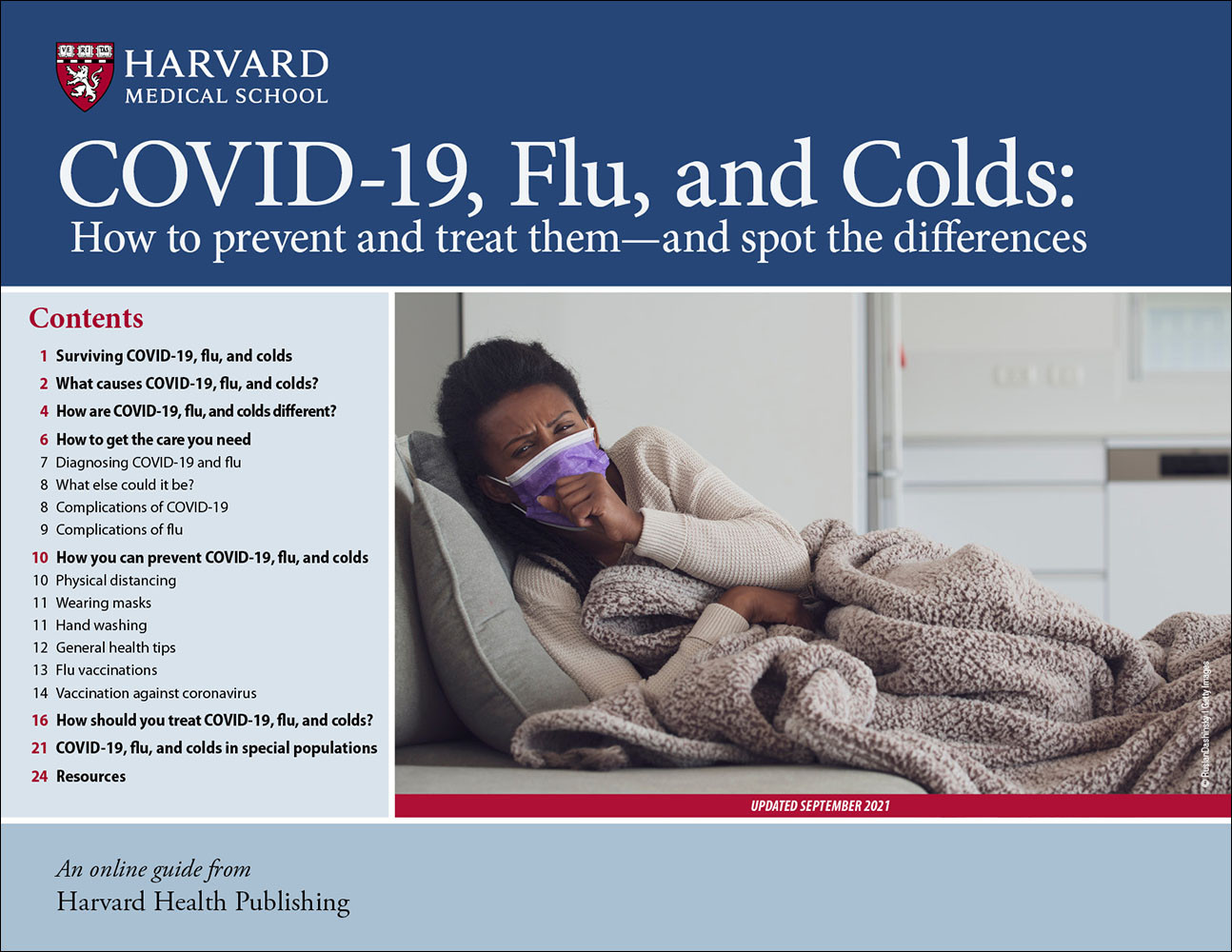Why do I need a flu or COVID vaccine?
Ask the doctor
 Q.
My doctor says I should get vaccines for the flu and COVID. But I've never had either flu or COVID, so why do I need a vaccine?
Q.
My doctor says I should get vaccines for the flu and COVID. But I've never had either flu or COVID, so why do I need a vaccine?
A. Most people are not as lucky as you: in their lifetimes, many people get sick from influenza (flu) multiple times, and blood tests show that most people in the United States have been infected with the COVID virus even though some people may not have realized it.
Each of these viruses can make a person very sick. In the United States, 15,000 to 50,000 people die from the flu every year, and over a million have died from COVID. Fortunately, there is no doubt that the vaccines for each virus are effective in reducing the risk of getting very sick. You may know all this and still wonder if you really can benefit from these vaccines.
So, here's something else to consider, as shown by several important recent studies. The flu and COVID viruses both can injure the body, making it vulnerable to developing new major illnesses. Take the flu. A study involving 26,000 people, published in the medical journal NEJM Evidence in July 2024, found that in the week following the flu, the inflammation caused by the flu virus destabilized plaques of atherosclerosis, causing clots to form. As a result, people were six times more likely to have heart attacks in the first week after getting the flu than these same people had been in the year before they got the flu and in the year after they recovered from it. Many of those people had not previously been diagnosed with heart disease.
Another new study compared 135,000 people who developed COVID to 5.2 million who did not (but were similar in age, gender, and medical conditions). The individuals were identified in 2020, before the COVID vaccine was available. Scientists found that those who got COVID had a much higher risk for heart, lung, gastrointestinal, and brain diseases over the next three years — including more heart attacks, strokes, and newly developed Alzheimer's disease. This was true even of people who had been only mildly ill with COVID. The evidence was published in the journal Nature Medicine in June 2024.
Finally, an outstanding study involving nearly six million people in the United States found that getting the COVID vaccine greatly reduces these risks. The findings were published in The New England Journal of Medicine in July 2024.
So even if you are one of those unusual people who has never gotten the flu or COVID — or at least hasn't gotten very sick from them — there still are good reasons to get the vaccines. Not only do they reduce your risk of getting the flu and COVID, they also reduce your risk of getting several serious additional diseases. Who would not want that?
Image: © fstop123/Getty Images
About the Author

Anthony L. Komaroff, MD, Editor in Chief, Harvard Health Letter; Editorial Advisory Board Member, Harvard Health Publishing
Disclaimer:
As a service to our readers, Harvard Health Publishing provides access to our library of archived content. Please note the date of last review or update on all articles.
No content on this site, regardless of date, should ever be used as a substitute for direct medical advice from your doctor or other qualified clinician.
















